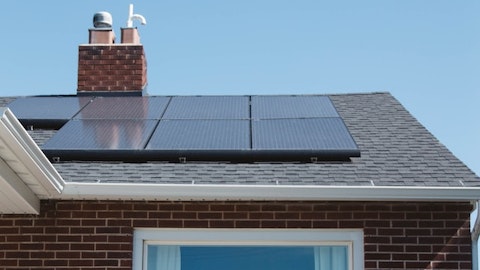Shar Pourreza: So, let me just drill down a little bit on the defending side. In the off chance there are issues with the CPCN, right? Do you – I guess Vince, do you have avenues, either through pollution control or T&D work to offset that space in your CapEx plan, I guess in a scenario where there is issues. And then do me a favor, could you just maybe frame what – how much of that CapEx you could see being backfilled, right, in that worst-case scenario?
Vince Sorgi: Well, look, I think the key takeaway is I am not sure I would expect whether we have a settlement or fully litigating our case that, that would have a material impact on either our capital plan or our EPS targets given the different buckets of CapEx, whether it’s building replacement generation or environmental spend or other types of CapEx that we might deploy in Kentucky and elsewhere across the fleet. If you look at the testimony and based on everything that’s been filed to-date, I don’t think the outcome, Shar, is going to be an all or nothing on the coal plant retirement. But when you look at the Good Neighbor Plan, which was consistent with what we were assuming in the CPCN, that would require SCRs on Gen 2, Mill Creek 1, Mill Creek 2, also a new cooling tower at Mill Creek 1.
When you look at the MATS regs and the ELG regulations, especially the ELG regs, that could result in significant incremental investments if we were required to do so. So, even if it was a full rejection of the retirements, which again, I don’t think that will be the outcome. As we have talked in the past, that’s in the $500 million to $1.5 billion of environmental CapEx. That doesn’t even include the amount of maintenance capital we have to spend on those plants going forward. So, again, I am not sure the outcome necessarily impacts the CapEx and EPS trajectory. It might just be different buckets where we are spending that capital.
Shar Pourreza: And then just lastly, that bucket you are going to be spending that capital. This is obviously the worst case scenario, so no ones are assuming this. But in the case that it does turn out to be negative, that incremental capital doesn’t have a timing lag, right? So, you can go ahead and recognize it fairly immediately where we wouldn’t keep divits in your earnings growth in the near-term.
Vince Sorgi: Some of that CapEx would have to – we would have to start spending that right away to continue to operate those plants. And that, to your point, that would be recoverable under the environmental cost recovery, which does not require a base rate case for recovery.
Shar Pourreza: Okay. Perfect. Thank you, guys. Have a great weekend. Appreciate it.
Vince Sorgi: Thanks.
Operator: The next question comes from Gregg Orrill with UBS. Please go ahead.
Vince Sorgi: Hey Greg.
Gregg Orrill: Hey. Yes. Thanks. This may be repetitive. I know you said that the testimony from intervenors was kind of in line with expectations. Did you learn anything about their positions that was incremental to the process that – or the process itself that you are willing to share?
Vince Sorgi: Not really, Gregg. I would say the testimony was as expected. I think we talked about expected intervener positions when we rolled out the plan that we filed. So, we knew the coal association would be against retiring coal. We knew the environmental intervenors would be pushing more renewables. Again, our plan, we think balances all of those interests. But more importantly, it complies with SB-4, it complies with our obligations to serve lease cost, reliable, safe energy. It is increasingly cleaner which we are hearing a lot from our customers and from our two major cities in Louisville and Lexington. So, we were extremely thoughtful and took a lot of actually intervene or input from the IRP process into coming up with what we proposed.
As I have talked about, however, we are willing to engage in settlement discussions with the parties, and we will see if we can reach something here in the next couple of weeks going into the hearings beginning on the 22nd. So, I would say, as expected and we incorporated most, if not all of that into the original plan that we filed with the commission.
Gregg Orrill: Alright. Thanks.
Operator: [Operator Instructions] The next question comes from Anthony Crowdell with Mizuho. Please go ahead.
Anthony Crowdell: Good morning Vince. Good morning Joe.
Vince Sorgi: Good morning.
Anthony Crowdell: I just wanted to follow-up on Shar’s question just one, and I am not sure you can answer it. Do you know if the commission in Kentucky would prefer the parties reach a settlement or given maybe with the closure of plants or whatever, that they are more buyers or they prefer a fully litigated track to have maybe a stronger record?
Vince Sorgi: I don’t know that they have a preference one way or the other. Anthony, to be honest with you, they are going to uphold their obligation to ensure whether it’s a settlement or our case that it meets the requirements of SB-4 and again, our obligation to serve in a lease cost reliable way. So, they are going to do their duty regardless of what’s in front of them, whether it’s a settlement or our case. Not sure if they have a preference on which one is in front of them. I mean they will take a settlement as evidence in the case. They don’t have to approve the settlement, but they will certainly take it as evidence in the case. The authority really lies with them in terms of whether or not to accept that or not.




